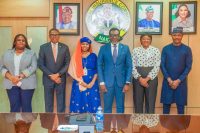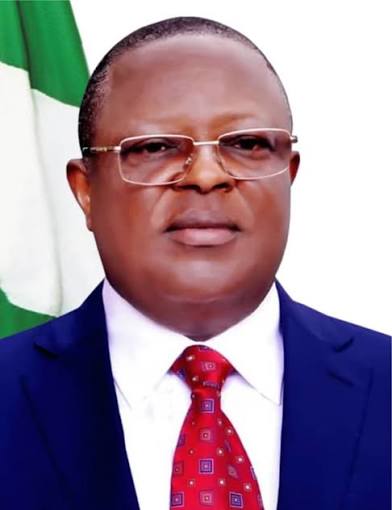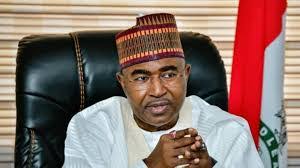The Executive Chairman of the Economic and Financial Crimes Commission, EFCC, Mr Ola Olukoyode, said the anti-graft agency is closely monitoring the 2025 budget implementation by Ministries, Departments and Agencies, MDAs, towards ensuring that releases made to them are not stolen.
He made the disclosure while addressing a delegation of the management team of Human and Environmental Development Agenda, HEDA, led by its Chairman, Olarenwaju Suraju who paid him a courtesy visit at the Commission’s corporate headquarters.
“We are monitoring the MDAs, particularly on the implementation of the budget. If we can even do 50 percent of our capital budget, the country would be fine. There is no year that we have done up to 25 percent of our capital budget and releases are being made, but there’s no commensurate development. We are monitoring and tracking every kobo released. If we can do 50 percent of capital budget implementation, Nigeria will be fine infrastructure wise. So far, the first quarter has gone, and we are working to stop budget allocations of MDAs from being stolen. In sane societies, budget allocations are not stolen,” he said.
Speaking on the resolve of the Commission, he declared that, “We will continue to do the right thing, we will continue to fight the fight within the confines of the rule of law and we will have impact. Last year was the best year of EFCC so far. The year we recorded the highest conviction in the 22 years history of EFCC and also the highest recovery in the history of the Commission. But we are not relenting, we’ll continue.
“I may not promise more recoveries this year because of the systems and processes that we have put in place. With the measures that we have put in place, we will no longer wait for money to be stolen. It is when you allow the system to be porous for money to be stolen that you’ll be chasing recoveries. And like I have said before, it takes more to recover than to prevent. The essence of my setting up the department of Fraud Risk Assessment and Control, FRAC is for us to do more of prevention. So this year you’ll be seeing more of prevention. In the event that people have less to steal, there will be less for us to recover. That’s one of the areas where we’re trying to hone our skills and build our commitment.”
He further used the occasion to throw light on the motivation of the Commission for its interventions in the extractive industry. “The issue of environmental crime and corruption is something that we have also come to identify with because if you look at our report particularly in the area of collaboration with NEITI, it addresses so much. It talks about the issue of our commitment to fighting environmental crime, illegal mining, which is going on everywhere, degradation of our environment and all of that. These are the direct impacts of corruption. Quite a number of these miners are not licensed, they are illegal. They offer no economic benefits to the nation; they degrade our environment and they go away with our resources. So we are losing at all ends and we said, this sabotage must stop.
“We are collaborating very strongly with the Ministry of Solid Minerals. We’re also collaborating with NEITI, which is like the watchdog over the activities in the extractive industry. So, I want to tell you that every bit of our efforts have been driven towards making things better and stimulating the economy,” he said.










